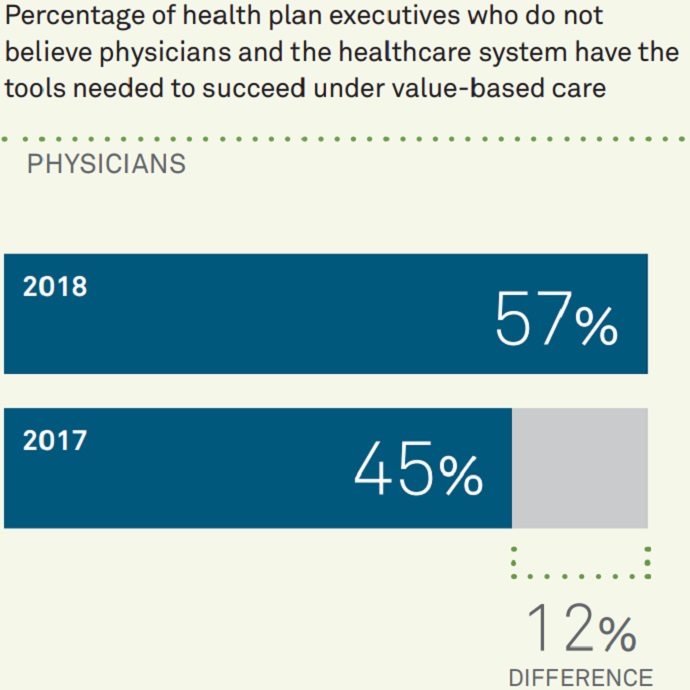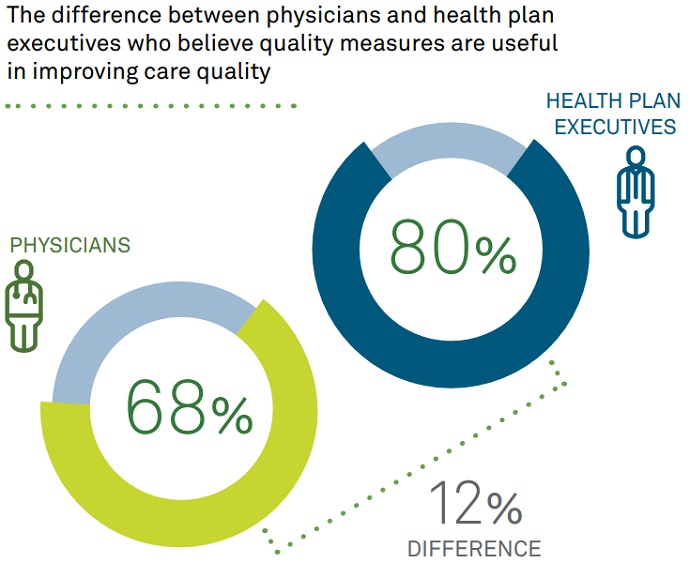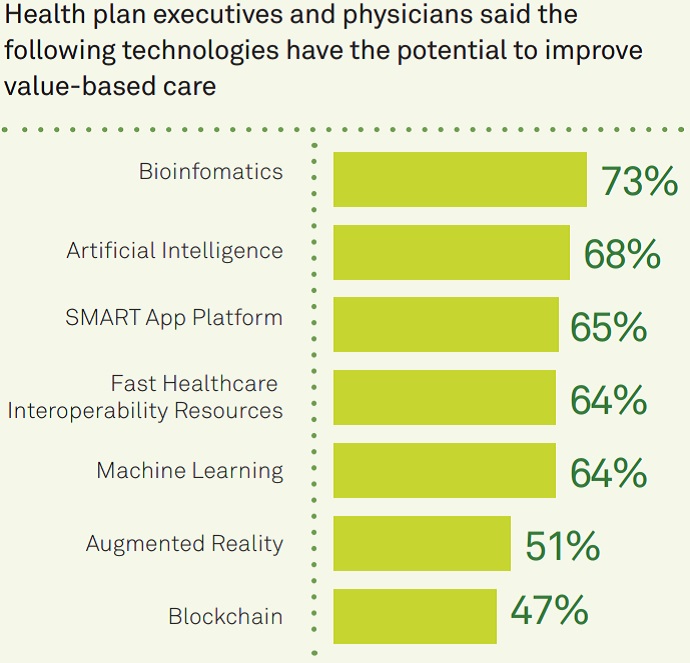Docs, Payer Execs Agree Providers Lack Tools for Value-Based Care
The majority of payer executives now agree that providers do not have the tools for value-based care success, causing the transition to stall for both groups, a new survey showed.

Source: Thinkstock
- A lack of technology and patient data may be stalling or even reversing the value-based care transition, a new survey of primary care physicians and health plan executives revealed.
“Stalled Progress on the Path to Value-Based Care,” the third annual survey from Quest Diagnostics, found that over two-thirds (67 percent) of physicians and health plan executives think the current healthcare industry is a fee-for-service system versus 63 percent in last year’s survey.
Only 27 percent of the 451 respondents in the most recent survey believed the industry was value-based. That is down from 29 percent the previous year.
The value-based care transition is stalling because doctors do not have access to the tools necessary to succeed under alternative payment and care delivery models, the survey uncovered. Most health plan executives (57 percent) are now saying that physicians do not have the tools for value-based care success.

Source: Quest Diagnostics
The survey’s finding is a change from last year’s results, which found that just 45 percent of health plan executives felt providers did not have the tools to succeed.
READ MORE: What Is Value-Based Care, What It Means for Providers?
Health plan executives also flipped their views on if the healthcare system as a whole has the tools necessary for value-based care. Fifty-four percent of health plan leaders now think the system does not have the tools for value-based care success compared to 46 percent last year.
The number one tool that physicians said they need to succeed with value-based care is EHRs, followed by clinical decision support, data analytics, and EHR plug-ins or modules, the survey found.
“While our study suggests the healthcare industry still has a long way to go to deliver value-based care, it reveals avenues to speed the journey,” stated L. Patrick James, MD, Chief Clinical Officer of Health Plans and Policy, Medical Affairs at Quest Diagnostics.
“Measures that optimize EHRs, make data more accessible and insightful, and reduce complexity of quality measurement are much needed steps to accelerate this transition. First, however, it’s clear that health plan executives and physicians need to better align around a shared vision of how technology and data can improve patient care.”
EHR technology and patient data proved to be major challenges in the past year for both physicians and health plan executives.
READ MORE: Value-Based Reimbursement Shift Slows, But CEOs Still Preparing
Approximately 72 percent of survey participants reported that providers do not have all the information they need about patients, up from 60 percent of respondents in the 2017 survey.
Physicians also wanted more patient data in their EHRs. About 72 percent of primary care doctors said lab data has the largest impact on clinical decisions they make on behalf of their patients.
Furthermore, 96 percent of physicians and health plan leaders agreed that lab results can “provide meaningful insights that influence their care,” 88 percent said the information can “provide insights that prescribing and claims data can’t always provide,” and 84 percent reported that lab data “deliver insights critical to bridging gaps in care.”
But providers are finding that their EHRs are incomplete, and EHR interoperability would help. Only 39 percent of doctors reported having EHRs that provide all the data they need for care delivery.
Eighty-six percent said that they could deliver improved care if their EHR was interoperable with other health IT systems and tools.
READ MORE: Preparing the Healthcare Revenue Cycle for Value-Based Care
Additionally, the survey found that providers and health plan executives still do not meet eye-to-eye when it comes to quality metrics and technology that benefits value-based care measurement.
The survey uncovered a 12 percentage point difference between physicians and health plan leaders who feel that quality measures are useful for improving care quality.

Source: Quest Diagnostics
The same percentage point gap existed between both groups when asked if they agree or disagree that technological investments for quality initiatives have improved the value of healthcare for patients. Sixty-eight percent of doctors felt investments have increased value versus 80 percent of health plan executives.
Disagreements over quality measurement highlighted the misalignment between providers and payers, which has not gotten better since last year, according to physicians.
The survey revealed that just 41 percent of physicians believe progress has been made toward greater alignment between payers and providers in the last year, while 62 percent of health plan executives felt the same.
But the groups did agree on one thing about quality measures, and that is that they are too complex. Approximately 74 percent of both physicians and health plan leaders said quality measures are too complex, which makes them difficult to achieve for providers.
Implementation of innovative health IT tools has the potential to improve the value-based care transition, the survey showed. About six in ten physicians and health plan executives said bioinformatics, artificial intelligence, the SMART App Platform, Fast Healthcare Interoperability Resources (FHIR), and machine learning implementation would benefit value-based care.

Source: Quest Diagnostics
Approximately one-half of respondents (47 percent) also thought blockchain could help the value-based care transition, with health plan executives being significantly more optimistic about the technology.
Sixty-four percent of health plan leaders said that blockchain in healthcare would increase data sharing across organizations. But only 45 percent of physicians thought that blockchain could help data sharing and interoperability.
Providers prefer making investments that improve their EHR interoperability capabilities, the survey stated.
But providers are still looking for technological advancements. Eighty-nine percent of both groups agreed that companies should be more innovative and integrate new technologies to improve patient care.
“It’s encouraging to see that physicians and health plan executives recognize the potential of emerging technologies, such as artificial intelligence and blockchain in healthcare, to catalyze the shift to value-based care,” stated Lidia Fonseca, Senior Vice President and Chief Information Officer at Quest Diagnostics.
“That’s a positive sign because it means our industry may be more open to harnessing the power of technology and insights from data to spur important transitions – like the shift to value-based care – than it was just a few years ago.”
